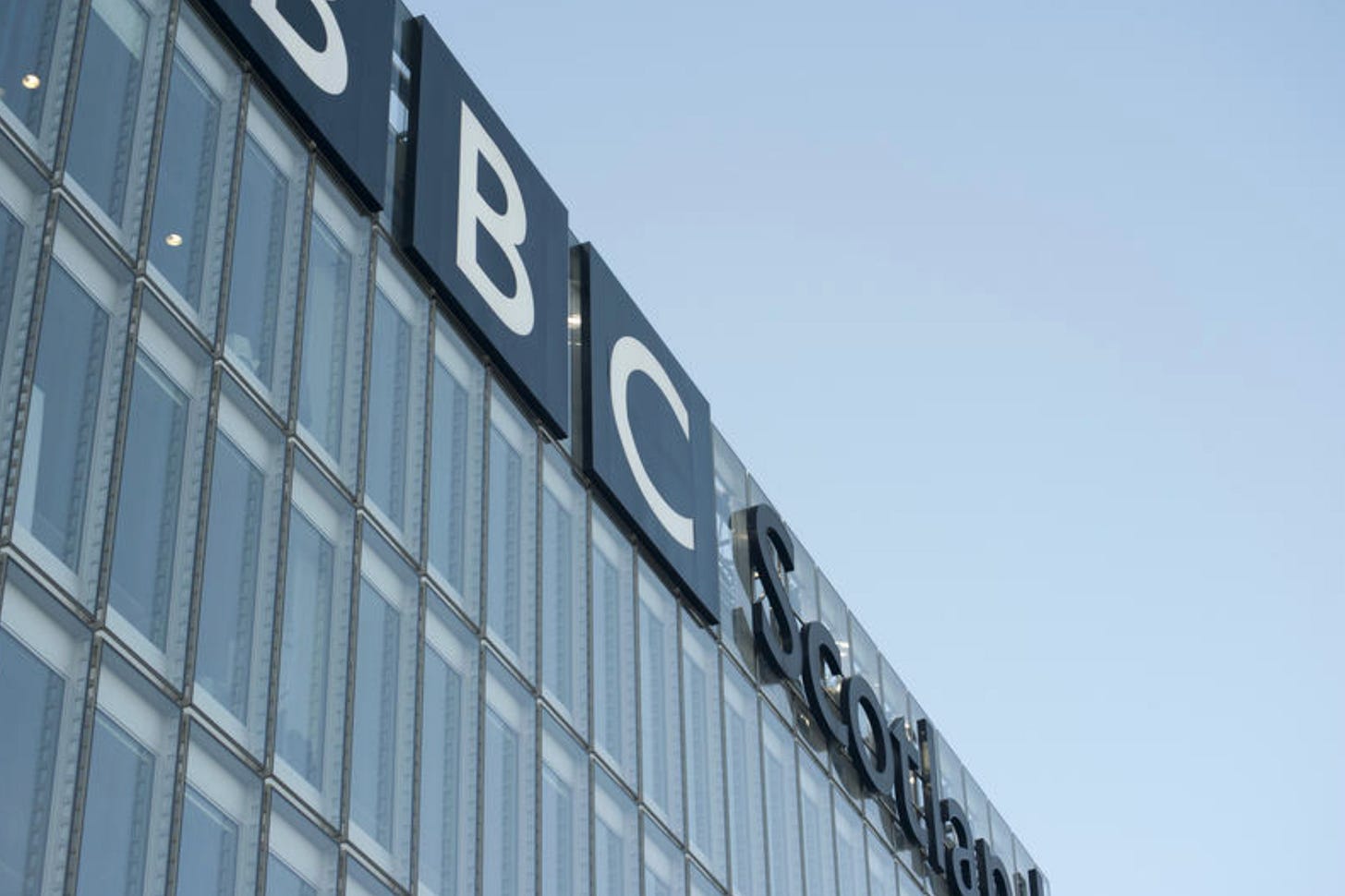BBC Now Calling Trans Women 'Biological Males Who Identify As Women'
These stories come in the aftermath of allegations that a small but mighty cabal of “LGBT reporters” had somehow seized control of the BBC and “censored” right-wing views.
Following a contentious newsroom battle at the BBC over allegations of political bias, it seems the media empire has given way to transphobic rhetoric—canonizing anti-trans talking points in one of the world’s most influential news outlets.
This week, the BBC published an article about comedian turned anti-trans provocateur Graham Linehan, who swung at 17-year-old Sophia Brooks after she confronted him outside of a political conference in London. They exchange verbal jabs. Clutching her phone, Brooks asks: “Why do you think it’s OK to call teenagers domestic terrorists?”
That’s when Linehan threw Brooks’ phone to the ground in anger, the BBC reports. Afterwards, he went on to social media and called Brooks a “sociopath,” “psycho,” “domestic terrorist,” and a “groomer,” seemingly because Brooks is transgender.
Linehan was cleared of online harassment charges by a judge (who misgendered Brooks throughout the legal proceedings), but he was fined for damaging Brooks’ phone. However, the media frenzy surrounding the case also offered a glimpse into a more troubling trend from within the BBC.
In the report on the Linehan verdict, BBC culture reporters Ian Youngs and Paul Glynn described Brooks as someone who was “born a biological male but identifies as a woman”—and the article itself appears to tactfully avoid referring to Brooks with any pronouns at all. In a Nov. 4 piece published in the BBC without a byline, medic Rose Henderson was also called “a biological male who identifies as a woman.” The reporter(s) use similar language to describe Henderson in an article from October.
The terms “biological male” and “biological female” have no universal medical definition. Some may use it interchangeably with phrases like “sex assigned at birth,” but ultimately, it reinforces the patently false notion that there are two binary and immutable sexes, and that there are always clear cut distinctions between them. In other words, this verbiage is not only demeaning to trans people; reporters never seem to describe cisgender people as “identifying” as male or female. Even more than that, this language is deeply unscientific.
“Extensive research confirms that sex and gender are complex and cannot be reduced to simplistic “biological” categories. Using these phrases [’biological male’ and ‘biological female’] to target trans people is not a matter of accuracy but of animus — language wielded to stigmatize and deny transgender and nonbinary people’s right to live openly and safely,” GLAAD’s Guide to Anti-LGBTQ Online Hate and Disinformation explains.
This isn’t the first time the BBC has used unscientific and pejorative rhetoric surrounding trans people; just recently, a senior news anchor came under fire for changing “pregnant people” to “women” live on air during a scripted segment on health risks during pregnancy, accompanied by what some viewers perceived as a condescending glare when she said it.
Deadline reports that the BBC’s Executive Complaints Unit said that “the phrase ‘pregnant people’ was followed by a facial expression which has been variously interpreted by complainants as showing disgust, ridicule, contempt or exasperation.” Bundled with other factors, such as the ensuing social media fallout, the Executive Complaints Unit determined that the anchor had violated newsroom rules and standards about maintaining impartiality.
This was amidst viral claims that a small but mighty cabal of “LGBT reporters” had somehow seized control of the BBC and “censored” right-wing views on everything from trans rights to the Trump Administration.
But these new stories apparently indicate the opposite—that, like many institutions, the BBC is arguably backing down from ethical and scientifically rigorous coverage in order to cater to the anti-trans agenda. Instead, it has reverted back to pejorative terms to refer to transgender people in many of its news pieces.
Of course, the BBC is not alone in this regressive move. The New York Times and The Washington Post have also seen a recent rightward shift on many issues, including trans rights. Yet another one can be expected from CBS now that its editor-in-chief is longtime anti-trans pundit Bari Weiss.
For more scientific and culturally competent ways of covering trans issues, reporters can consult the Trans Journalists Association’s Stylebook and Coverage Guide—a tool for newsrooms to bolster their coverage of trans people and the stories that affect them.
Editors note: A previous version of this story linked to a separate GLAAD Guide text. After updating their guide, GLAAD contacted us to point to the newer updated text, which we did.




Can I describe the BBC as a "propaganda outlet that identifies as a newsroom"?
Are we surprised? This is TERF Island News. The only thing that surprises me is that it’s taken them this long to do it.